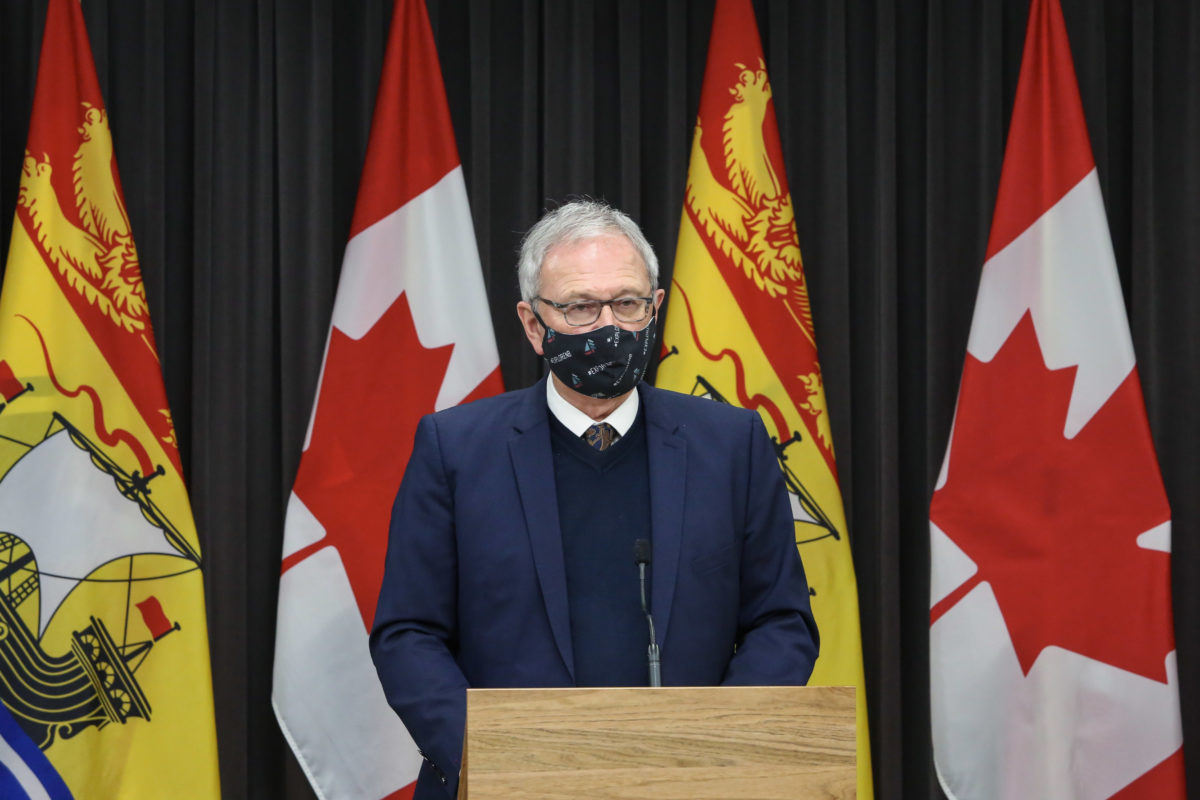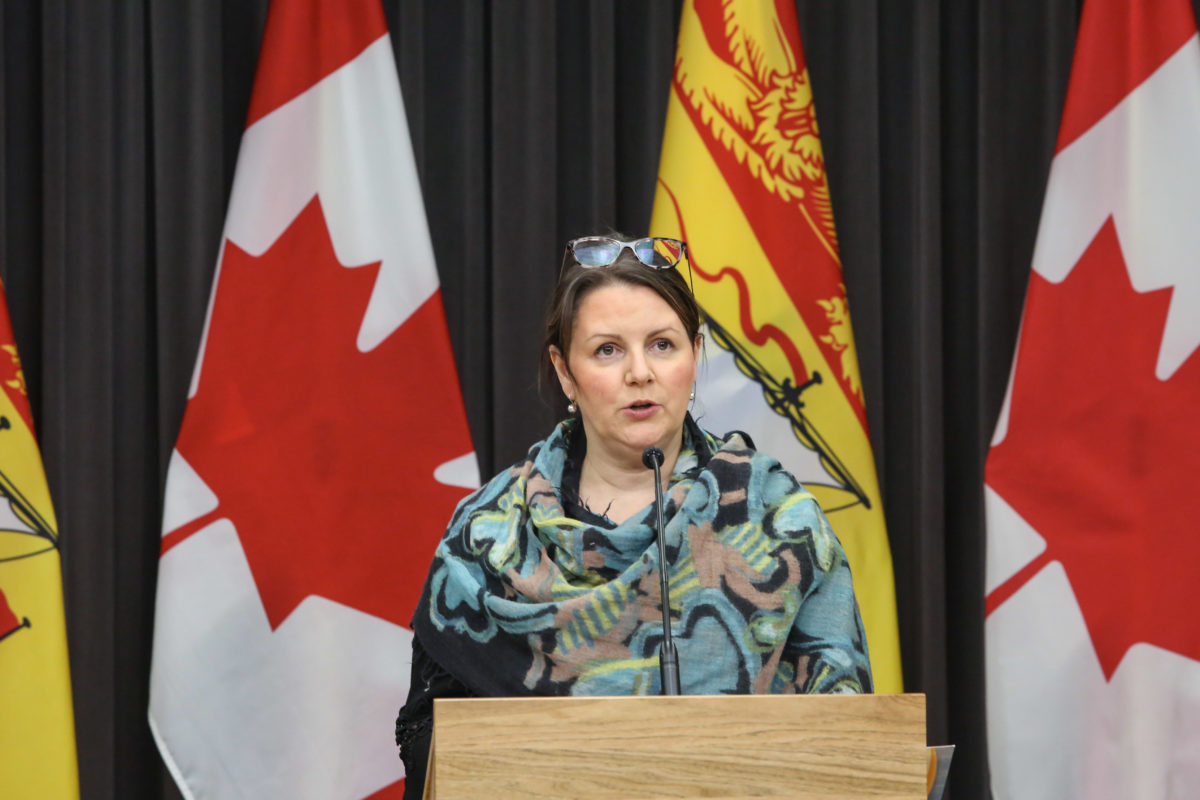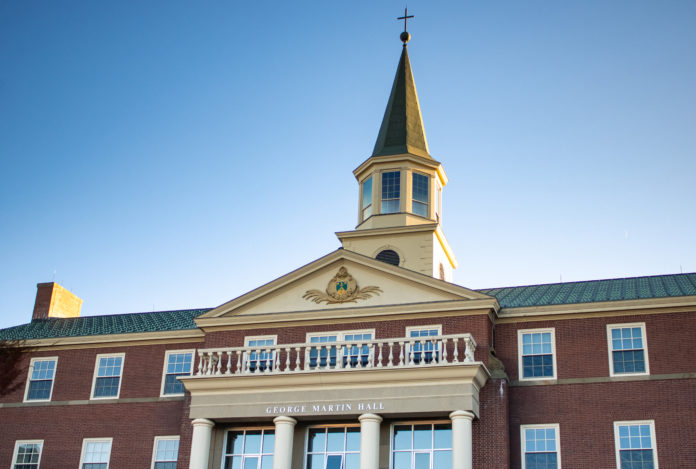After announcing 31 new cases of COVID-19 throughout New Brunswick on Tuesday, Dr. Jennifer Russell, the province’s chief medical officer of health, said the Moncton, Saint John and Fredericton regions would revert to the red phase of the province’s COVID-19 recovery plan at midnight on Wednesday.
The move means businesses like entertainment centres, gyms, salons and indoor dining facilities will close. Still, all facilities with a COVID-19 operational plan like grocery stores, schools and daycares will stay open under the red phase.
But Public Health said those facilities would have to close for three days if officials find a confirmed case of COVID-19.
Jeffrey Carleton, associate vice president communications at St. Thomas University, said under the red phase, classes will continue online and any in-person elements will be suspended. Faculty will also still have access to their offices while following Public Health guidelines.
Starting Wednesday, administrative offices and student services offices will be closed to the public and only provide services online. Carleton said administrative directors will work with staff to refine details about their operations under the red phase.
Campus buildings like the Daniel O’Brien Study Hall, Sir James Dunn Hall and computer labs will stay open to students with mandatory masks and physical distancing in place. But the J.B. O’Keefe Fitness Centre will be closed and all varsity sport practices are cancelled.
Carleton said the transition to the red phase will not have an impact on students living in Rigby Hall and its current rules will continue. He said students living there can expect an email from Residence Life that staff will be onsite and available as normal.
At a press conference Tuesday, Russell told reporters she knows there will be consequences related to this “absolutely necessary” change. With rising case counts, Russell said New Brunswick is likely “in the roughest stretch” of its battle against COVID-19.
“We have to get to herd immunity over the next several months while continuing to battle new variants, new travel-related cases, delays in vaccine delivery and while protecting the health-care system, health-care workers and our vulnerable populations,” said Russell.

Premier Blaine Higgs said New Brunswick is at a crucial point and it is not business as usual. He said some residents became complacent over the holidays and the province is now “paying the price.”
If cases continue to rise, Higgs said New Brunswick might have to go into a full lockdown, similar to when the pandemic began. It’s something provinces like Ontario have had to do to flatten the curve.
“I cannot stress enough … this is a turning point for our province,” said Higgs. “We have never been in a situation like this since the pandemic began. We have never had so many cases.”
Carleton said STU officials met after the winter holidays to go through their COVID-19 response plan. With the possibility of a further lockdown, he said it is something administration will look at on Wednesday.
“That’s one of the things we’re going to look at tomorrow if there be further changes with regards to campus,” said Carleton. “And we would be communicating those to students if those changes are required.”
“The key thing for St. Thomas is … our core activity, the teaching, the learning, the classes, that’s going to be able to be continued uninterrupted and that’s the most important factor for us.”


Health officials confirmed 31 new cases of COVID-19 in New Brunswick, all of which are currently self-isolating and under investigation. There are now 316 active cases of the virus.
Russell also confirmed the province’s 13th COVID-related death, a resident of Parkland Saint John’s Tucker Hall long-term care facility.
“I encourage all New Brunswickers to keep these people in their thoughts and prayers at this difficult time, as well as the others who have lost someone they love to this virus,” said Russell.
The new cases are as follows: Four cases in Zone 1 (Moncton region); three cases in Zone 2 (Saint John region); one case in Zone 3 (Fredericton region); 21 cases in Zone 4 (Edmundston region); one case in Zone 5 (Campbellton region) and one case in Zone 6 (Bathurst region).

